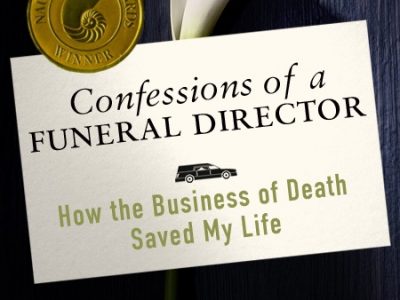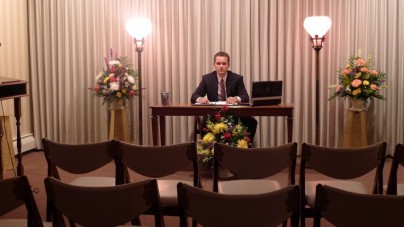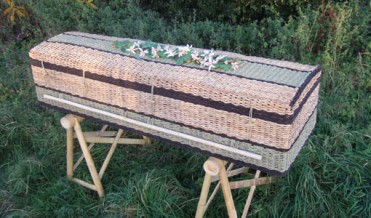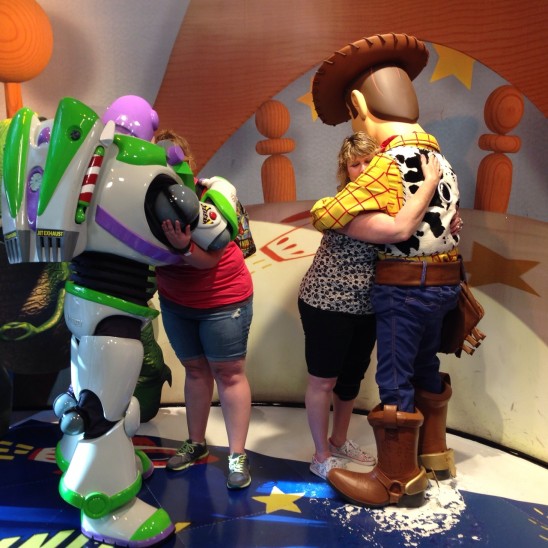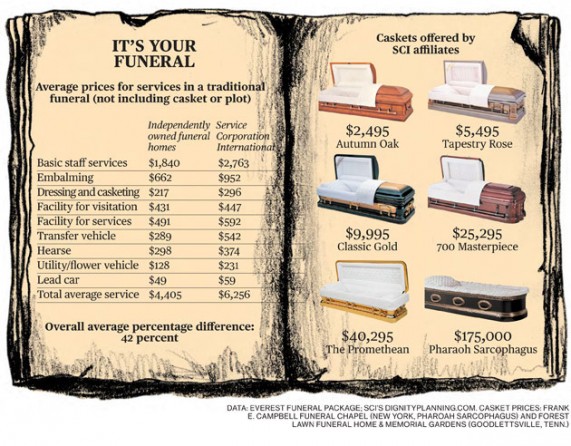Writing the Dark Chapters
I walk into a room at 6 a.m. and all eyes fix on me and my next move. I am, after all, the odd one out in the room, the one whose face isn’t stained with tears; the one wearing dress clothes, who’s there in body, but whose soul isn’t in the depths.
I’m the colonialist, walking into another culture, ready to impose society’s desire for a clean picture of death.
Those who are sitting around the bed of the deceased aren’t thinking about what you and I are thinking about at 6 in the morning. They aren’t wondering how they will get their kids dressed in time for school; or how they’re going to pitch their project to coworkers at work.
Everything is on hold.
Time has slowed at a pedestrian pace and they sit in grief … resisting the reality that what was their husband, their wife, their son, daughter, grandfather, friend is no longer present to hug, laugh and live with.
Death creates its own culture … its own world.
A world where time seems to altogether stop, where language is often spoken with less words and more tears, hugs and contemplation, where the regular dress code doesn’t exist and where the norms and mores of society are put on hold. Here, in this sacred space at 6 a.m. in the morning, God seems nearer; family and friends surround you; you can let your emotional inhibitions go. This is the world that was never meant to be and yet is everything you wish it could be. It seems we have to go back through death to get to Eden.
With tie draped down my dress shirt, if I can’t imagine a world unlike mine … if I can’t picture a context outside of me … if I can’t remove myself from the all too obvious facts that it’s 6 a.m., I’m tired, didn’t get my Dunkin Donuts medium coffee with cream and sugar, and that I’ll be even more tired tonight when I’m supposed to go to Chili’s with my wife; if I can’t imagine the family’s story; the story of the deceased and his life and the loss this represents, I can’t be a good funeral director.
Funeral directing is a lot like writing. It involves alterity, imagination and the ability to make a lot of the detail and little of the obvious. I write the story as I walk into the sacred space of grief.
I notice the one closest to the decease’s body. ”That’s probably the NOK”, I think to myself. Granted, the story is easier to imagine if I already know the family, but this morning I don’t. The closest one to the bed is oft the main character in this play; and I can write a story of comfort, by entering the narrative with a warm hug, maybe even a kiss, a kind smile and eyes that speak of the compassion my heart is feeling; or, I could write a story as a narrator, standing back, observing and not entering. What does this specific family need?
I wait as the drama unfolds, as my very presence evokes the supporting characters who will inevitably point me to the protagonist.
Asking questions; feeling out the room. I enter in and I – at this very moment – have the privilege and responsibility of helping to write this chapter.
Do Funeral Homes Charge too Much? 10 Thoughts on the Cost of Funerals
Do you think funeral homes charge too much for their merchandise and services?
I asked this question on my Facebook page yesterday. Over 200 people answered. And the discussion became pretty heated. Being that I like hot topics, I thought I’d take a stab at the question.
Let me preface this article by saying that I am not an economist, nor am I an exceptional business man. The following are ten observations that are a combination of experience in the funeral industry and my heart felt intention to meet the needs of the people I serve – needs that often include an economical funeral.
One. Yes, there are bad guys (and bad corporations) in the funeral industry. Legit racketeers.
Two. Yes, there are good guys.
Funeral directors who are more concerned with helping you through the funeral process than with making money. There’s probably more good guys than bad guys. We’re out there. Find us.
Three. Shifting Cultural Attitude towards Death
The industrialization of dying has removed the dying of our loved ones from home care. The institutionalization of dying means that you will probably die in an institutional setting (hospitals, nursing homes), where “professionals” treat the body while (often) ignoring social and spiritual aspects of dying. In fact, three out of four deaths in the United States occur in a hospital or nursing home, outside of our home surrounding and outside of the comfort of our family.
The professionalization of death has removed death from home and family. The Amish hire the funeral director to embalm the body and produce the legal paper work, but they do the rest. They dress the body, they casket the body, they have the funeral at their home and they direct the funeral service. There’s something to be said about one’s caretakers in life also being one’s caretakers in death.
With the industrialization and professionalization of death and dying, we have had the responsibility taken away from the community, and without that responsibility, without that personal investment in dying and death, we no longer see the full value of funeralization.
Four. Jessica Mitford and the Public Perception.
“You may not be able to change the world, but at least you can embarrass the guilty”, said Mitford. In Stephen Colbert-esque fashion, Mitford’s “The American Way of Death” wittingly embarrassed the abuses of the funeral industry in the 1960s and paved the way for the “Funeral Rule” in the early 1980s.
The “Funeral Rule” is meant “to protect consumers by requiring that they receive adequate information concerning the goods and services they may purchase from a funeral provider.”[1] And while some of the abuses in the funeral industry have been quelled by the Funeral Rule, the depiction of funeral directors as “oleaginous salesman pushing me to buy a mink-lined steel casket with an Eternal Memory Foam pillow fringed in Flemish crepe and gently scented with lilac”[2] has – to one degree or another – remained in the public perception.
On the one hand, it’s important to recognize that Mitford’s criticisms were – and, in some cases, are — warranted; on the other hand, it’s important to recognize that Mitford viewed the funeral industry through the lens of economics and class. She seemed to believe that the funeral industry was based on a desire to assert one’s standing in society. Why else would you spend a couple grand on a funeral, unless you were attempting to distinguish yourself from others? And funeral directors capitalized on this desire to brag in death. In your moment of intense weakness, we play on your pride and reach into your wallet. So, of course we are overcharging … at least, that’s part of the public perception.
Five. Value.
And this leads us to the value of a funeral. In a capitalist market, value is determined by the market … by you. If you value it, you’ll pay for it. And seeing value in a funeral is the real question. It’s not, “Do funeral homes charge too much?”; rather, its, “Is there real value in funerals?” Once we answer the value question, then we can answer the cost question.
If you don’t see value in what a funeral home is offering you, find one that offers you the product and services that you do value.
If you don’t see value in the products that the industry is offering you, demand different products and service.
If we do indeed charge too much, it’s because the market doesn’t see value in what we’re offering.
Six. Trust.
The funeral home that is geographically closest to us charges roughly two grand more per funeral than our funeral home. We know some of the people they bury and – because it’s generally known that our funeral home is rather inexpensive – I often wonder, “Why do they go to Such-and-such Funeral Home when we’re less expensive?” My conclusion? Trust. They have a better relationship with that funeral director than they do with us.
Because we recognize that death has altered our reasoning, when someone dies and we have to make arrangements, we want to go to somebody we trust … and, if possible, someone we already know. In our transient society, there’s situations where we have not connections to funeral directors / funeral homes.
But, when there is trust with a funeral director, when there is a relationship with a funeral director, especially during times of death, money isn’t as much of a consideration. The value of trust usually outweighs the cost.
Seven. Non-profit vs. for profit.
I think there’s an expectation for us to be a non-profit organization. To be a ministry. But, if we were a non-profit ministry, there’d simply be less consumer options. It would be governed by a board, the products would be determined by donors and the service might be even more cookie cutter than it already is.
There are options. You should be able to find a funeral home that offers a direct cremation for under $2,000. You don’t have to be embalmed. There are cemeteries that don’t require vaults. There are inexpensive caskets.
You can die at home. You can be more involved in the death process. In 1996 Jessica Mitford was buried for $533.31. With inflation rates factored in, you can purchase the equivalent of Mitford’s funeral today.
Nine. Prepaying / Insurance Policies.
It’s always much more difficult to handle the expenses of a funeral when you have to pay it all at once. Think buying a car with cash. Not all of us can do it.
If you plan ahead, or buy an insurance policy, you can pay in increments and when the time comes it’s not as much of a shock.
Ten. Pre-planning: Now is the Time to Think about Death.
We plan for weddings. We plan for births. Think about your dying and death now. Think about what you want. Think about how you want your funeral to look. Find a funeral director who can meet your needs
[1] http://en.wikipedia.org/wiki/Funeral_Rule
[2] http://www.patheos.com/blogs/godandthemachine/2013/06/finaljourney/
Sometimes healing comes unexpectedly
This awesome story is written by Tumblr user Annie and was originally posted on her Tumblr page. I messaged Annie and asked if I could share her story here and she agreed.
As some of you know, my brother died last year. It was actually 8 months ago today. Anyways, when my mom and I went to Hollywood Studios yesterday, we decided to stop and take pictures with Woody and Buzz in my younger brother’s honor. We were the only people in line without little kids and got strange looks, but stayed anyway.
When it was our turn for pics, both Buzz and Woody were very fun and playful and posed for pictures. At the end, though, my mom started to tear up, followed by me tearing up. My mom quietly explained to Woody that her son had passed away in October and that he loved Woody growing up, that Toy Story was his favorite movie as a kid, and he had worn his Woody costume almost every day when he was little after he got it for Halloween.
My mom just said a quiet thank you and stepped back so that the next people in line could take a pic, but before she could get away, Woody pulled her into the tightest, sweetest hug. Buzz engulfed me in a hug, having heard what my mom said.
I’m not exaggerating that Woody hugged my mom for a solid minute as she cried on his shoulder and everyone just got quiet and let us have our moment. The cast member that had my phone took pictures and then started to tear up himself. Woody finally let go of my mom just to pull me into a tight hug and Buzz hugged my mom.
While the character actors aren’t allowed to talk, they made a kissing sound to blow us each a kiss while they hugged us and I could hear Woody sniffing through the costume.
We walked away feeling bad for taking up so much time, but the cast members just smiled and told us they were glad we could have that moment. As we walked away, Woody and Buzz waved by and blew more kisses.
My mom turned to me, with tears still streaming down her face, and said that it was the best hug she had been given by anyone since my brother had died.
And that, ladies and gentlemen, is the magic of Disney.
More Room for Me . . . at the Cemetery
Today’s guest post is written by Ed Munger:
*****
It’s always a fitting time to consider what kind of environmental destruction I’ll leave in my wake once I depart.
Others, I’m afraid to say, are more concerned with their environmental footprint – or body print – than I am. For them, there’s a veritable cornucopia of options for final remains, aside from traditional cemetery burial.
Some offer the option of leaving a real statement that says “hey, this guy really cared about the planet.”
Some of the natural and green burial movements aren’t a major departure from tradition, but these options do seek to reduce the human impact after death.
Cemeteries are gradually opening up spaces dedicated to environmentalists – some go so far as to offer wildflower meadows devoid of headstones and markers.
These options further reduce environmental impact by eliminating all the mowing of grass and weed-whacking that makes use of fossil fuels. It’s one of the less-extreme measures that’s taking root on the American burial scene.
More-extreme to me is this mushroom death suit I’ve been reading about. According to the Infinity Project, studies and tests are underway to develop the perfect mushroom that would “consume” what’s left of a person.
A prototype of the suit isn’t too pretty, the one I saw was black in color and looked like something you’d wear on a deep ocean dive (see below).
But it’s supposedly filled with mushroom spores which, once I started going sour, would consume all that’s left of me including all the mercury I’ve collected from eating fish I caught.
I’ll have to assume these mushrooms are not edible. I hope they place a sign or something near them so people who pick berries and wild fruit don’t accidentally make soup out of them.
I’m unsure if there’s a quiet disagreement underway between the green burial clan and the cremation club. Cremation doesn’t leave much but ash – yet it requires combustion and ultimately puts ‘people smoke’ up into the air.
I’m not going to look it up. I’m sure somebody out there has detailed all the byproducts of people combustion.
For those willing to accept a little smokestack pollution, there’s a big list of otherwise nature-friendly options for final remains.
Scattering is one of the more-senior of these options. Mariners are providing the service, offering people a chance to have their remains scattered into the ocean.
That’s a viable option for those who love the sea.
So too is the idea of incorporating a person’s cremated remains into an appropriate shape for a reef – offering tiny sea creatures a new home with a human touch.
In terms of reducing the impact my dirty remains will have on the Earth, being cremated then sent into outer space seems like an option worth looking into.
There’s a company that will send a “symbolic portion” of cremains out into space on a commercial flight that’s heading up anyway to bring a satellite into orbit.
The company, Celstis, boasts responsibility for the first human burial on the moon back in 1999.
I’m not sure if I’m happy about this idea. I haven’t decided yet if I want to create an environmental movement dedicated to the moon, plus I’m still thinking about pitching a new idea to situate a landfill up there, so I’m a bit conflicted.
It might be a stretch to get tradition-minded people to consider having their remains cast off the planet, but that doesn’t make these people anti-environment either.
The next best thing for the terrestrial environmental burial also involves cremation ashes – placed into the Bio Urn.
These types of final resting places entail putting people’s ashes into a biodegradable cup filled with a seed so that the deceased will be engrained into a tree that grows and reaches towards the sky.
Trees produce oxygen too, so it’s a way of giving back some of the air we selfish humans think nothing of breathing in all the time.
It seems to me new methods of dealing with our final remains just keep surfacing, which is a great thing in terms of giving people options.
It’s even better for me – I consider myself among the most selfish people on my planet.
It’s no secret people are opting for cremation at increasing rates, reducing what’s left of themselves to a bucketful of ash.
Whether these remains are stored in a columbarium or scattered over the desert, ocean, or tossed on a shelf, they are taking up much less space than we, as a people, used to in the old days.
Picking up candy bar wrappers when I’m out in the woods hunting probably doesn’t get me into the environmentalist club.
Nor does keeping the heat on at 70-degrees in my house when it’s chilly.
And I need four-wheel-drive, living in Upstate New York, which requires a bit more fuel. I mow my lawn with a gas-powered mower and have no problem letting machinery do the work when there is a machine to do it.
I consider that an expression of my pride in the accomplishments of industrious, inventive people.
For a stodgy and uninteresting person like myself, all these new-age and environmentally-friendly burial methods are a source of happiness.
But that’s not because I have any intention of taking advantage of them.
I tried to envision myself as a coral reef but can’t get the thought of my old fish tank – and what the fish did to the pretend reefs I put on the bottom – out of my head.
I am equally uninterested in having a bunch of fungi feed off of my hide.
Ultimately, I plan to get the whole nine yards of a funeral just like my grandfather and his grandfather and the rest of my family.
I’ll be taking up a slew of space underground and bringing all my chemicals with me, along with my stamp collection.
So the continued movement towards Earth-friendly final remains disposition is a good thing for me.
It means it’s less-likely I’ll be told there’s no room for me in the cemetery.
*****
Ed Munger oversees social media and assists with communications for the New York State Funeral Directors Association. Ed was previously a newspaper reporter, winning several prestigious awards from the NYS Associated Press Association. Ed is the main contributor for the blog Sympathy Notes, at http://www.sympathynotes.org/Follow him on Twitter @SympathyNotes
Eight Thoughts on my HATE / LIKE Relationship with Corporate Run Funeral Homes
If you aren’t aware of the corporate monsters in the funeral business, let me introduce you to Service Corporation International (SCI, also known as “Dignity” funeral homes and cemeteries). SCI is “based in Houston and publicly traded on the New York Stock Exchange (NYX), it operates more than 1,800 funeral homes and cemeteries in the U.S. and Canada. It has 20,000 employees and a market capitalization of $4 billion” (Paul M. Barrett). SCI is in a ongoing exchange with the Federal Trade Commision in an attempt to aquire Stewart Enterprises, the second largest funeral corporation; a deal that would effectively give SCI an additional 400 locations, and — what many argue — a violation of federal antitrust laws.
Just to be clear, I — like most independent funeral directors — don’t like corporate run funeral homes. I think they’re bad for consumers and they hurt the already injured public perception of the funeral industry by perpetuating the money-hungry mortician stereotype.
But, I want to be fair in my treatment of corporate run funeral homes. Here are four reasons I hate them and four reasons I like them.
FOUR REASONS I LIKE THEM:
One. New blood in the business
One of the greatest benefits that comes out of Corporate Funeral Homes is that they give first generation funeral directors an opportunity to enter and shine in the funeral industry. If you’re entering the funeral industry, corporate is a great place to find a job in an otherwise difficult market of family businesses that tend to only hire from within.
I know that many of you reading this post right now work at corporate funeral homes and I just want to say that the funeral industry needs you. You bring fresh perspective, hard work and heart to this trade. Perhaps the greatest testimony to your ability and talents is this: theoretically, a corporately run funeral home shouldn’t work. A “machine” shouldn’t be able to serve people in their most human experience. But, it does — to a degree — work. And the only reason it works is because the saving grace of corporate funeral homes is because of YOUR dedication.
Two. Pay.
Many say that corporate tends to pay their employees better than independent funeral homes.
Three. The Hours.
Independent funeral homes aren’t always managed well. For about seven years of my life, I was on call 24/7 except for two days out of the month. That’s right. I got two days off a month. There were times when I’d work 21 days straight, and I was on call for 24 hours of each of those days. No time for a personal life. No time for a vacation.
Corporate tends to be better run, having shifts and more days off for the staff.
Four. Vertical Movement.
Climbing the management ladder at an independent funeral home is difficult if not impossible. Like working for any family run business, the children of the owners always take precedence. You can work at a funeral home for 50 years and you’re still not able to earn the job that the owner’s 25 year old son is given. It sucks. And corporate is a great place to reward those who work the hardest.
FOUR REASONS I HATE THEM:
One. Some businesses are meant to be small.
Our family has served the Parkesburg and surrounding communities for over 150 years. We know our people. We grew up here. We shop here. We go to church here. If we did something wrong, it’d be in the newspaper the day before we did it. Our roots go deep. Heck, we’re related to half the local population.
If you take that heritage away and the interconnectedness we share with this community, you take away a key part in our ability to serve Parkesburg. Some businesses are meant to be small. Some businesses are meant to be local. Like a herd of cows trouncing through a garden, corporate funeral homes in a small community can end up doing more harm than good.
Two. Macro over micro economies
Most corporate funeral homes have some degree of price standardization. This is all well and good, except with those price standards have been determined in wealthier areas of the country. When a corporate funeral home focuses on macro economies you have big city price setting that gauges the small towns.
Three. Money over service.
Back in 1993, Robert Waltrip (Chairman of the Board of Service Corporation International [SCI], which owns more than 2,100 locations) stated that people who don’t buy his company’s stock “just don’t like money.” When you go corporate, money and satisfying your stock holders are your bottom-line.
This monetary bottom-line is what produces the upselling, the “salesman” mentality and the overpriced merchandise. And this – this corporate need to satisfy the stock holder – perpetuates the public opinion that funeral directors are just a bunch of greedy sticklers.
“An SCI funeral cost 42 percent more than a funeral at an independently owned funeral home.”
And this one, “Seventy-three of the priciest 100 (funeral homes) in the U.S. are owned by SCI.” (VIA Paul M. Barrett)
That’s a problem.
Four. The Insatiable Corporate Hunger to GROW
Death is one of the must human experiences. And it needs to be served with the most of human of professions. Corporate, by definition, is a non human entity. It’s very unhuman … robotic … machanical … and alien. The mixing of a corporate entity and the most human of experiences is as dangerous as unleashing Godzilla into a city. The only saving grace — as I mentioned previously — is that these funeral home monsters hire wonderful people. And if it wasn’t for these people, the damage would be even worse.
Our funeral home is content with who we are. We have no desire to buy another location; nor do we want to put our competitors out of business. We make a respectful and honest living and we’re happy with it.
Corporate, though, is — like a monster — never happy. There’s always a desire to grow … always a desire to buy up another family owned funeral home. Think Wal-Mart. Sometimes growth – especially the growth of a monster – is a bad thing.
